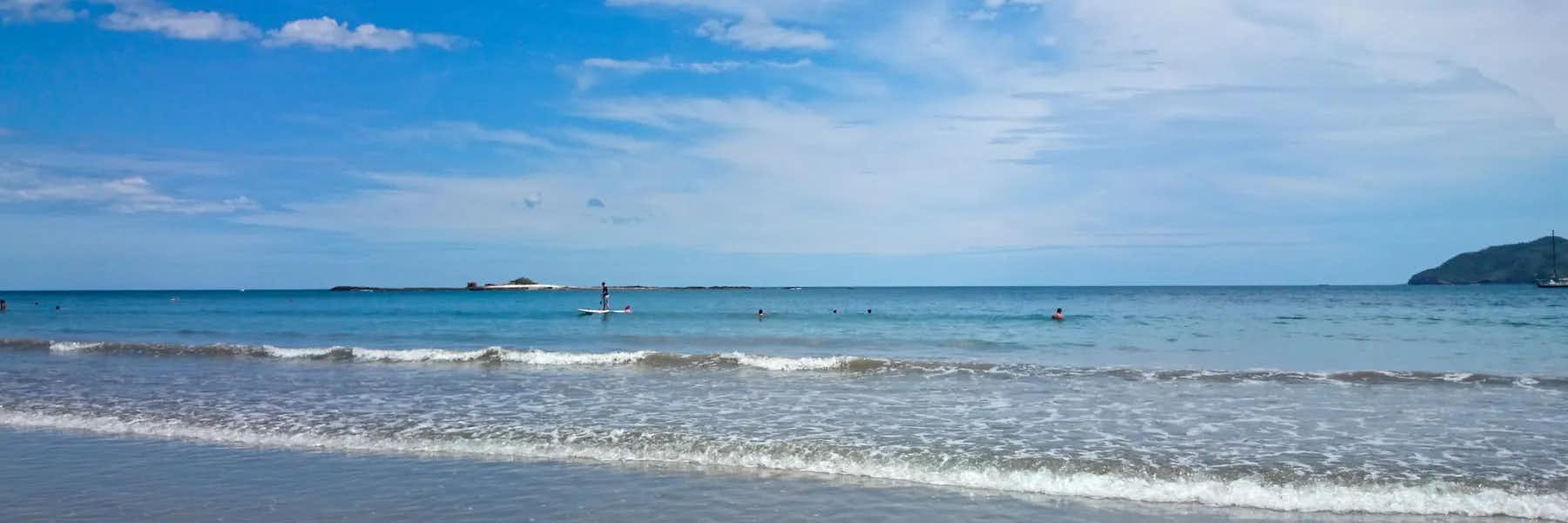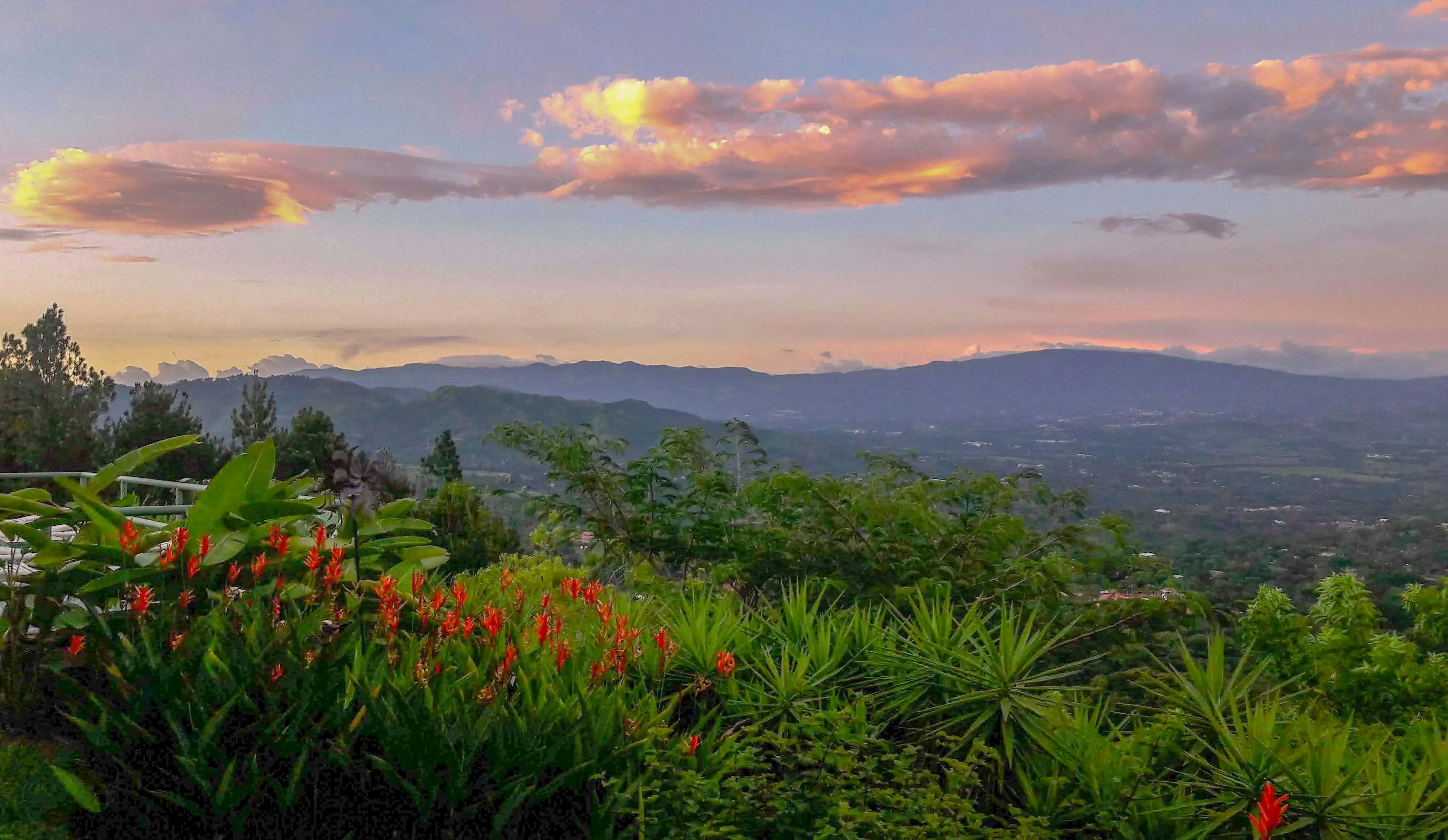Mostly, coastal property is untitled in Costa Rica because the ownership and possession of the shoreline is governed by the Maritime Zone Law (Ley Sobre la Zona Maritimo Terrestre) which restricts the possession and ownership of beachfront property.
By law, the first 200 meters of beachfront starting at the high-tide markers is owned by the government. Of the 200 meters, the first 50 meters are deemed public zones (Zonas Públicas), and nobody may posses that area.
On the remaining 150 meters, referred to as the Restricted Zone (Zona Restringida), the government will lease the land to private individuals or corporate entities. This arrangement is known as a concession.
Before conferring the concession, the law mandates that the beach area have the high-tide markers in place.
The Maritime Zone Law imposes restrictions on foreign ownership (generally to get a concession you have to be a legal resident) or possession of beachfront property so careful research is always required when considering an investment in beachfront property in Costa Rica.
All this means that when you are looking at beachfront property, whether a home or condo, it is vital to do your due diligence. Find out whether the property is titled (which is rare) or concession land, as well as any restrictions on ownership for foreigners and any special procedures. An attorney in Costa Rica familiar with real estate matters will be your best resource for this research.
One of the draws of the country is that you can still buy an established home on or near the beach for much lower prices than a comparable home in Florida or California. A condo—a studio—within a few minutes’ walk of the beach may cost as low as $28,000 in a popular expat area, with two-bedrooms going for $70,000 and up. For condos in buildings right on the beach, expect to pay $225,000 and up in well-developed tourist destinations. Homes on the beach start at around $100,000 in out of the way locations, with properties in established areas running $250,000 and up.
Homes on the Pacific coast are generally more expensive than homes on the Caribbean. Keep in mind that true beachfront, titled property, is rare in the country. Some of those popular expat areas where it is possible to get title on the water are Jaco, Esterillos, and Playa Hermosa on the central Pacific coast. There are some properties that have been grandfathered in and given beachfront title. But never assume that just because there is a home on the beach for sale that it is titled.
Purchasing procedure for Property in Costa Rica
As a general rule, don’t delay in making an offer once you find the property you want to buy. The market in Costa Rica is simply too strong to wait. On the other hand, don’t buy property you haven’t actually visited. No matter how much research you do—talking with knowledgeable friends, looking at pictures, or getting information from the internet—never buy from a developer or individual unless you’ve actually visited the condo, house, or land. It is often a good idea to rent in a location first for several months so you can get to know the neighborhood, town, and region before you commit to buying.
Buy only what you see—not what a developer or real estate agent may promise. Many developers, for example, talk about plans for new roads, clubhouses, golf courses, or marinas. But a lot can go wrong, even with the best developments. To protect yourself, don’t figure tomorrow’s features into the price you offer today. Also, check to make sure the developer has water permits and construction permits approved and in hand. The government has restricted these permits in recent years to slow development in certain areas.
As you would do when buying property elsewhere, don’t hesitate to ask for a reduction in price if parts of the house are in disrepair or look as though they may need repairs in the near future. In Costa Rica, ask for a discount—perhaps as much as $2,000—if the residence lacks a telephone. New phones are difficult to get. But cellphone service is reliable and widespread and Skype and MagicJack (phone services using high-speed internet) have made long distance plans nearly obsolete, so most expats have no problem living without a local home phone.
Get Your Free Costa Rica Report Here
Get Your Free Costa Rica Report Here
Learn more about Costa Rica and other countries in our daily postcard e-letter. Simply enter your email address below and we’ll send you a FREE REPORT - Explore the Old World in Laidback Costa Rica.

By submitting your email address, you will receive a free subscription to IL Postcards, Overseas Dream Home, The Untourist Daily and special offers from International Living and our affiliates. You can unsubscribe at any time, and we encourage you to read more about our Privacy Policy.














